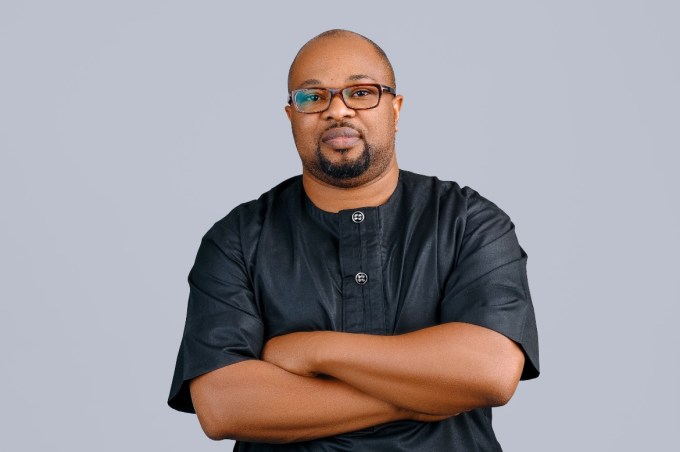Business
Beacon Power Services raises $2.7M to improve electricity access for sub-Saharan African cities

Sub-Saharan Africa’s share of the global population without access to electricity stood at 77% in 2020, according to reports. Also, the average daily electricity supply in some of Africa’s largest cities is less than 12 hours. As a result, individuals and businesses find other options and substitutes, such as generators, to deal with their power issues; however, these solutions can either be costly to use or affect the climate.
While solar grids and panels are another viable option and have compelling use cases for end consumers, there’s still an opportunity to launch products targeted at power distribution companies, and that’s where Beacon Power Services (BPS) plays. The energy tech company, which provides data and grid management solutions to help Africa’s power sector distribute electricity more efficiently, is announcing today that it has closed a seed round of $2.7 million.
Founder and chief executive officer Bimbola Adisa, an aerospace engineer, started the company in 2014 after working several years for a power turbine manufacturer and as an investment banker covering the power sector in the U.S. For the latter, most of his clients included electric utilities, service providers and manufacturers. In an interview with TechCrunch, he said these experiences gave him exposure to the application of technology in the power sector, and he saw an opportunity to apply that in Nigeria and across Africa.
Adisa launched BPS in 2014 to address the inadequate electricity supply from power distribution companies. The U.S.- and Nigeria-based utility company provides energy management software and analytics for utilities. Its AI-enabled grid management platform, Adora, solves one of two fundamental problems power distribution companies face in Africa.
The software offers real-time visibility on network performance for electric utilities and connects to every utility asset and customer node on the grid, allowing energy providers to preempt outages and identify network losses, respond to them quickly and distribute electricity more efficiently. “The result is that utilities can operate more efficiently, recover more revenue, and by reducing outages, customers get increased supply of electricity (more hours supplied daily), so everyone wins,” said BFS in an emailed response to TechCrunch on how Adora works.
The other problem is data-focused, tackled by the company’s proprietary platform called Customer and Asset Information Management system (CAIMs). Utilities in Africa struggle to maintain an accurate database of their customers, assets and grid topology (the relationship between assets and customers). The CAIMs solves this by factoring in the unique conditions within which Africa’s utilities operate, for example, poor address systems, and helps them digitize their data, which serves as a foundation for network improvements.
“Africa is home to the fastest growing cities in the world, but when most people think of energy access in Africa, they think of the rural areas with little or no access to electricity at all. However, it is impossible for Africa to develop without significantly improving electricity access and reliability across its major cities,” said CEO Adisa in a statement. “When we realized that solutions designed for mature markets fail to address the unique infrastructure challenges Africa faces, we developed a tailored solution for power companies on the continent to improve daily grid supply of electricity.”

Bim Adisa (CEO)
Adisa told TechCrunch that BPS has grown from a single utility in Nigeria to four utilities in two countries, including Ghana, covering more than 8 million customers (residential and businesses). BPS’ business model entails working with its clients as partners over the long term, and not just to sell products, said Adisa. As such, the company can defer most of the upfront cost of deploying its technology in exchange for service-based payments commensurate with the value it creates.
The eight-year-old energy utility company says it differs from other platforms because it provides “local solutions that factor in the local operating environment in Africa.” For instance, most off-the-shelf solutions created for mature markets do not factor in the frequency of outages encountered in Africa or the network communications issues experienced, but BPS claims its solutions have solved that.
The company’s seed round was led by Seedstars Africa Ventures with participation from Persistent Energy, Kepple Africa Ventures, Factor[e] and Oridun Capital Management. Speaking on the investment, Maxime Bouan, managing partner at Seedstars Africa Ventures, said, “As a society, we have recognized climate change as one of the biggest threats to our generation, and it is critical we use smart capital to support entrepreneurs across Africa who are creating innovative and localized solutions to tackle this challenge.”
The new funding would enable BPS to improve its current products (product upgrades to add new features and incorporate automation) and expand into new markets beyond Nigeria and Ghana, where it currently operates.
-

 Entertainment6 days ago
Entertainment6 days agoWhat’s new to streaming this week? (Jan. 17, 2025)
-

 Entertainment6 days ago
Entertainment6 days agoExplainer: Age-verification bills for porn and social media
-

 Entertainment5 days ago
Entertainment5 days agoIf TikTok is banned in the U.S., this is what it will look like for everyone else
-

 Entertainment5 days ago
Entertainment5 days ago‘Night Call’ review: A bad day on the job makes for a superb action movie
-

 Entertainment5 days ago
Entertainment5 days agoHow ‘Grand Theft Hamlet’ evolved from lockdown escape to Shakespearean success
-

 Entertainment5 days ago
Entertainment5 days ago‘September 5’ review: a blinkered, noncommittal thriller about an Olympic hostage crisis
-

 Entertainment5 days ago
Entertainment5 days ago‘Back in Action’ review: Cameron Diaz and Jamie Foxx team up for Gen X action-comedy
-

 Entertainment5 days ago
Entertainment5 days ago‘One of Them Days’ review: Keke Palmer and SZA are friendship goals




















